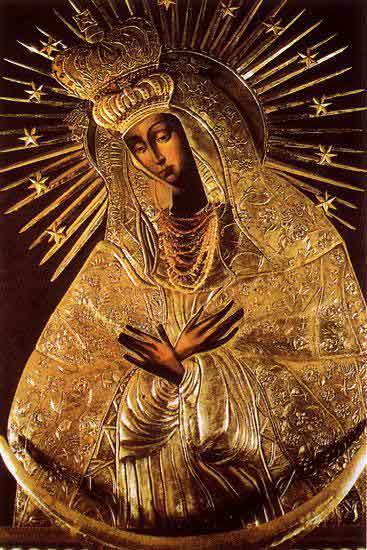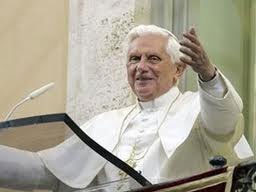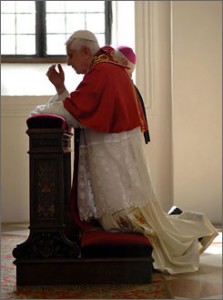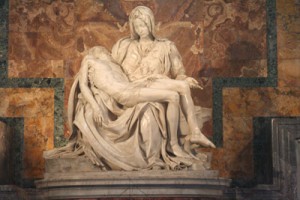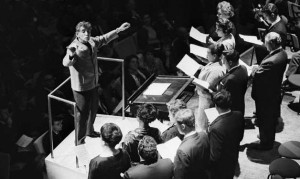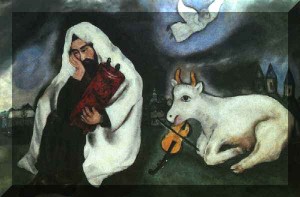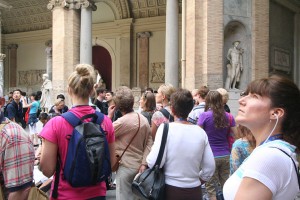Mother of those who place their hope in Solidarity, pray for us.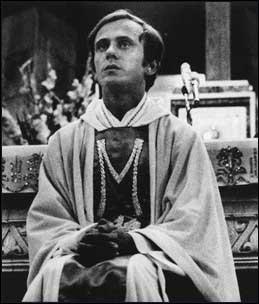
Mother of those who are deceived, pray for us.
Mother of those who are betrayed, pray for us.
Mother of those who are arrested in the night, pray for us.
Mother of those who are imprisoned, pray for us.
Mother of those who suffer from the cold, pray for us.
Mother of those who have been frightened, pray for us.
Mother of those who were subjected to interrogations, pray for us.
Mother of those innocents who have been condemned, pray for us.
Mother of those who speak the truth, pray for us.
Mother of those who cannot be corrupted, pray for us.
Mother of those who resist, pray for us.
Mother of orphans, pray for us.
Mother of those who have been molested because they wore your image, pray for us.
Mother of those who are forced to sign declarations contrary to their conscience, pray for us.
Mother of mothers who weep, pray for us.
Mother of fathers who have been so deeply saddened, pray for us.
Mother of our suffering country _____, pray for us.
Mother of our faithful country _____, pray for us.
We beg you, O mother in whom resides the hope of millions of people, grant us to live in liberty and in truth, in fidelity to you and to your Son. Amen.
Tags: blessed mother, blessed virgin mary, catholic, catholic podcast, catholic prayer, cathollc spirituality, hope, liberty, mother, prayer, suffering, truth
This entry was posted on Wednesday, October 19th, 2011 at 6:00 am
You can follow any responses to this entry through the RSS 2.0 feed.
HUMAN HISTORY IS A HISTORY OF SALVATION – Psalm 126
VATICAN CITY, OCT. 12, 2011 (Zenit.org).- Here is a translation of the Italian-language catechesis Benedict XVI gave today during the general audience held in St. Peter’s Square. The Pope today continued his catecheses on prayer with a reflection on Psalm 126.
* * *
In the previous catecheses, we have meditated on a number of psalms of lament and of trust. Today, I would like to reflect with you on a notably joyous psalm, a prayer that sings with joy the marvels of God. It is Psalm 126 — according to Greco-Latin numbering, 125 — which extols the great things the Lord has done with His people, and which He continues to do with every believer.
The psalmist begins the prayer in the name of all Israel by recalling the thrilling experience of salvation:
“When the Lord restored the fortunes of Zion,
we were like those who dream.
Then our mouth was filled with laughter,
and our tongue with shouts of joy” (Verses 1-2a).
The psalm speaks of “restored fortunes”; that is, restored to their original state in all their former favorability. It begins then with a situation of suffering and of need to which God responds by bringing about salvation and restoring the man who prays to his former condition; indeed, one that is enriched and even changed for the better. This is what happens to Job, when the Lord restores to him all that he had lost, redoubling it and bestowing upon him an even greater blessing (cf. Job 42:10-13), and this is what the people of Israel experience in returning to their homeland after the Babylonian exile.
This psalm is meant to be interpreted with reference to the end of the deportation to a foreign land: The expression “restore the fortunes of Zion” is read and understood by the tradition as a “return of the prisoners of Zion.” In fact, the return from exile is paradigmatic of every divine and saving intervention, since the fall of Jerusalem and the deportation into Babylon were devastating experiences for the Chosen People, not only on the political and social planes, but also and especially on the religious and spiritual ones. The loss of their land, the end of the davidic monarchy and the destruction of the Temple appear as a denial of the divine promises, and the People of the Covenant, dispersed among the pagans, painfully question a God who seems to have abandoned them.
Therefore, the end of the deportation and their return to their homeland are experienced as a marvelous return to faith, to trust, to communion with the Lord; it is a “restoring of fortunes” that involves a conversion of heart, forgiveness, re-found friendship with God, knowledge of His mercy and a renewed possibility of praising Him (cf. Jeremiah 29:12-14; 30:18-20; 33:6-11; Ezekiel 39:25-29). It is an experience of overflowing joy, of laughter and of cries of jubilation, so beautiful that “it seems like a dream.” Divine help often takes surprising forms that surpass what man is able to imagine; hence the wonder and joy that are expressed in this psalm: “The Lord has done great things.” This is what the nations said, and it is what Israel proclaims:
“Then they said among the nations,
‘the Lord has done great things for them.’
The Lord has done great things for us;
we are glad” (Verses 2b-3).
God performs marvelous works in the history of men. In carrying out salvation, He reveals Himself
to all as the powerful and merciful Lord, a refuge for the oppressed, who does not forget the cry of the poor (cf. Psalm 9:10,13), who loves justice and right and of whose love the earth is filled (cf. Psalm 33:5). Thus, standing before the liberation of the People of Israel, all the nations recognize the great and marvelous things God has accomplished for His People, and they celebrate the Lord in His reality as Savior.
And Israel echoes the proclamation of the nations, taking it up and repeating it once more — but as the protagonist — as a direct recipient of the divine action: “The Lord has done great things for us”; “for us” or even more precisely, “with us,” in hebrew ‘immanû, thus affirming that privileged relationship that the Lord keeps with His chosen ones, and which is found in the nameEmmanuel, “God with us,” the name by which Jesus would be called, His complete and full revelation (cf. Matthew 1:23).
Dear brothers and sisters, in our prayer we should look more often at how, in the events of our own lives, the Lord has protected, guided and helped us, and we should praise Him for all He has done and does for us. We should be more attentive to the good things the Lord gives to us. We are always attentive to problems and to difficulties, and we are almost unwilling to perceive that there are beautiful things that come from the Lord. This attention, which becomes gratitude, is very important for us; it creates in us a memory for the good and it helps us also in times of darkness. God accomplishes great things, and whoever experiences this — attentive to the Lord’s goodness with an attentiveness of heart — is filled with joy. The first part of the psalm concludes on this joyous note. To be saved and to return to one’s homeland from exile are like being returned to life: Freedom opens up to laughter, but is does so together with a waiting for a fulfillment still desired and implored. This is the second part of our psalm, which continues: (more…)
Tags: catholic, catholic podcast, catholic prayer, cathollc spirituality, pope benedict xvi, prayer, psalm 126
This entry was posted on Wednesday, October 12th, 2011 at 5:48 pm
You can follow any responses to this entry through the RSS 2.0 feed.
Psalm 23 – Vatican.va
Turning to the Lord in prayer implies a radical act of trust, in the awareness that one is entrusting oneself to God who is good, “merciful and gracious, slow to anger, and abounding in steadfast love and faithfulness†(Ex 34:6-7; Ps 86[85]:15; cf. Joel 2:13; Jon 4:2; Ps 103 [102]:8; 145[144]:8; Neh 9:17). For this reason I would like to reflect with you today on a Psalm that is totally imbued with trust, in which the Psalmist expresses his serene certainty that he is guided and protected, safe from every danger, because the Lord is his Shepherd. It is Psalm 23 [22, according to the Greco-Latin numbering], a text familiar to all and loved by all.
“The Lord is my shepherd, I shall not wantâ€: the beautiful prayer begins with these words, evoking the nomadic environment of sheep-farming and the experience of familiarity between the shepherd and the sheep that make up his little flock. The image calls to mind an atmosphere of trust, intimacy and tenderness: the shepherd knows each one of his sheep and calls them by name; and they follow him because they recognize him and trust in him (cf. Jn 10:2-4).
He tends them, looks after them as precious possessions, ready to defend them, to guarantee their well-being and enable them to live a peaceful life. They can lack nothing as long as the shepherd is with them. The Psalmist refers to this experience by calling God his shepherd and letting God lead him to safe pastures: “He makes me lie down in green pastures. He leads me beside still waters; he restores my soul. He leads me in paths of righteousness for his name’s sake†(Ps 23[22]:2-3).
The vision that unfolds before our eyes is that of green pastures and springs of clear water, oases of peace to which the shepherd leads his flock, symbols of the places of life towards which the Lord leads the Psalmist, who feels like the sheep lying on the grass beside a stream, resting rather than in a state of tension or alarm, peaceful and trusting, because it is a safe place, the water is fresh and the shepherd is watching over them.
And let us not forget here that the scene elicited by the Psalm is set in a land that is largely desert, on which the scorching sun beats down, where the Middle-Eastern semi-nomad shepherd lives with his flock in the parched steppes that surround the villages. Nevertheless the shepherd knows where to find grass and fresh water, essential to life, he can lead the way to oases in which the soul is “restored†and where it is possible to recover strength and new energy to start out afresh on the journey.
As the Psalmist says, God guides him to “green pastures†and “still watersâ€, where everything is superabundant, everything is given in plenty. If the Lord is the Shepherd, even in the desert, a desolate place of death, the certainty of a radical presence of life is not absent, so that he is able to say “I shall not wantâ€. Indeed, the shepherd has at heart the good of his flock, he adapts his own pace and needs to those of his sheep, he walks and lives with them, leading them on paths “of righteousnessâ€, that is, suitable for them, paying attention to their needs and not to his own. The safety of his sheep is a priority for him and he complies with this in leading his flock.
Dear brothers and sisters, if we follow the “Good Shepherd†— no matter how difficult, tortuous or long the pathways of our life may seem, even through spiritual deserts without water and under the scorching sun of rationalism — with the guidance of Christ the Good Shepherd, we too, like the Psalmist, may be sure that we are walking on “paths of righteousness†and that the Lord is leading us, is ever close to us and that we “shall lack nothingâ€. For this reason the Psalmist can declare his calm assurance without doubt or fear: “Even though I walk through the valley of the shadow of death, I fear no evil; for you are with me; your rod and your staff they comfort me†(v. 4). (more…)
Tags: catholic, catholic podcast, catholic prayer, cathollc spirituality, jesus the good shepherd, psalm 23, the Psalmist
This entry was posted on Wednesday, October 5th, 2011 at 3:41 pm
You can follow any responses to this entry through the RSS 2.0 feed.
Special 6 – Interior Silence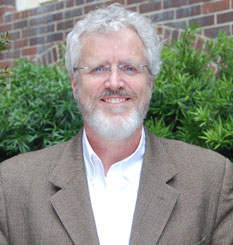
[powerpress]
Interior Silence, in particular in the liturgy, is reflected upon by Deacon Keating.  He leads a meditation during a prayer service with priests, on the letter “Spiritual Formation in the Seminaries”  which calls for spiritual silence to be at the core of seminary formation.  Priests are called to be teachers of prayer and directors of spirituality.  Why silence is so vitally important and what are the blocks  to prevent it…the cynicism that reacts to the ideal. The role of discernment and diminishing interference.  If priests have trouble with this, imagine the challenge for the laity.
Deacon Keating is the Director of Theological Formation for the Institute for Priestly Formation at Creighton University.
Click here for more Deacon James Keating
Tags: catholic, catholic podcast, catholic prayer, cathollc spirituality, silence
This entry was posted on Tuesday, September 27th, 2011 at 9:22 am
You can follow any responses to this entry through the RSS 2.0 feed.
VATICAN CITY, 14 SEP 2011 (VIS) –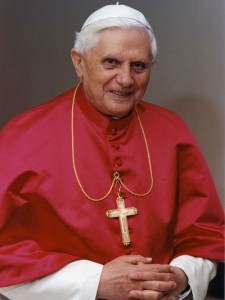
This morning the Holy Father travelled by helicopter from the Apostolic Palace at Castelgandolfo to the Vatican, where he held his weekly general audience in the Paul VI Hall. In his catechesis he dwelt on the first part of Psalm 22, focusing on the theme of prayers of supplication to God.
The Psalm, which remerges in the narrative of Christ’s Passion, presents the figure of an innocent man persecuted and surrounded by adversaries who seek his death. He raises his voice to God “in a doleful lament which, in the certainty of faith, mysteriously gives way to praise”.
The Psalmist’s opening cry of “my God, my God, why have you forsaken me?” is “an appeal addressed to a God Who appears distant, Who does not respond”, said the Holy Father. “God is silent, a silence that rends the Psalmists heart as he continues to cry out incessantly but finds no response”. Nonetheless, he “calls the Lord ‘my’ God, in an extreme act of trust and faith. Despite appearances, the Psalmist cannot believe that his bond with the Lord has been severed entirely”.
The opening lament of Psalm 22 recurs in the Gospels of Matthew and Mark in the cry the dying Jesus makes from the cross. This, Benedict XVI explained, expresses all the desolation the Son of God felt “under the crushing burden of a
mission which had to pass through humiliation and destruction. For this reason He cried out to the Father. … Yet His was not a desperate cry, as the Psalmist’s was”.
Violence dehumanises
Sacred history, the Pope continued, “has been a history of cries for help from the people, and of salvific responses from God”. The Psalmist refers to the faith of his ancestors “who trusted … and were never put to shame”, and he describes his own extreme difficulties in order “to induce the Lord to take pity and intervene, as He always had in the past”.
The Psalmist’s enemies surround him, “they seem invincible, like dangerous ravening beasts. … The images used in the Psalm also serve to underline the fact that when man himself becomes brutal and attacks his fellow man, … he seems to lose all human semblance. Violence always contains some bestial quality, and only the salvific intervention of God can restore man to his humanity”.
At this point, death begins to take hold of the Psalmist. He describes the moment with dramatic images “which we come across again in the narrative of Christ’s Passion: the bodily torment, the unbearable thirst which finds an echo in Jesus’ cry of ‘I am thirsty’, and finally the definitive action of his tormenters who, like the soldiers under the cross, divide among themselves the clothes of the victim, whom they consider to be already dead”.
At this point a new cry emerges, “which rends the heavens because it proclaims a faith, a certainty, that is beyond all doubt. … The Psalm turns into thanksgiving. … The Lord has saved the petitioner and shown him His face of mercy. Death and life came together in an inseparable mystery and life triumphed. … This is the victory of faith, which can transform death into the gift of life, the abyss of suffering into a source of hope”. Thus the Psalm leads us to relive Christ’s Passion and to share the joy of His resurrection.
In closing, the Pope invited the faithful to distinguish deeper reality from outward appearance, even when God is apparently silent. “By placing all our trust and hope in God the Father, we can pray to Him with faith at all moments of anguish, and our cry for help will turn into a hymn of praise”.
AG/ VIS 20110914 (630)
Published by VISarchive 02 – Wednesday, September 14, 2011
Tags: catholic, catholic podcast, catholic prayer, cathollc spirituality, pope benedict xvi, psalm 22
This entry was posted on Wednesday, September 14th, 2011 at 9:34 am
You can follow any responses to this entry through the RSS 2.0 feed.
DIALECTIC OF PRAYER: HUMAN CRY AND DIVINE RESPONSE
VATICAN CITY, 7 SEP 2011 (VIS) – This morning Benedict XVI travelled by helicopter
from the Apostolic Palace in Castelgandolfo to the Vatican for his weekly general audience in St. Peter’s Square.
Continuing a series of catecheses on the subject of “the school of prayer”, the Holy Father turned his attention to Psalm 3 which recounts David’s flight from Jerusalem when Absalom rose against him. “In the Psalmist’s lament”, the Pope said, “each of us may recognise those feelings of pain and bitterness, accompanied by faith in God, which, according the biblical narrative, David experienced as he fled from his city”.
In the Psalm, the king’s enemies are many and powerful, and the imbalance between David’s forces and those of his persecutors “justifies the urgency of his cry for help”. Nonetheless his adversaries “also seek to break his bond with God and to undermine the faith of their victim by insinuating that the Lord cannot intervene”.
Thus, the aggression “is not only physical, it also has a spiritual dimension” aimed at “the central core of the Psalmist’s being. This is the extreme temptation a believer suffers: the temptation of losing faith and trust in the closeness of God”, the Holy Father said.
Yet, as the Book of Wisdom says, the unrighteous are mistaken because “the Lord … is like a shield protecting those who entrust themselves to Him. He causes them to raise their heads in sign of victory. Man is no longer alone … because the Lord hears the cry of the oppressed. … This intertwining of human cry and divide response is the dialectic of prayer and the key to reading the entire history of salvation. A cry expresses a need for help and appeals to the faithfulness of the other. To cry out is an act of faith in God’s closeness and His willingness to listen. Prayer express the certainty of a divine presence which has already been experienced and believed, and which is fully manifested in the salvific response of God”.
Psalm 3 presents us “a supplication replete with faith and consolation. By praying this Psalm we share the sentiments of the Psalmist: a just but persecuted figure which would later be fulfilled in Jesus. In pain, danger and the bitterness of misunderstanding and offence, the words of this Psalm open our hearts to the comforting certainty of faith. God is always close, even in times of difficulty, problems and darkness. He listens, responds and saves.
“However”, the Pope added, “it is important to be able to recognise His presence and to accept His ways: like David during his humiliating flight from his son Absalom, like the persecuted righteous of the Book of Wisdom and, finally and fully, like the Lord Jesus on Golgotha. In the eyes of the unrighteous it appeared that God did not intervene and that His Son died, but for believers it was at that precise moment that true glory was manifested and definitive salvation achieved”.
The Pope concluded: “May the Lord give us faith, may He come in aid of our weakness and help us to pray in moments of anguish, in the painful nights of doubt and the long days of pain, abandoning ourselves trustingly to Him, our shield and our glory”.
AG/ VIS 20110907 (550)
PSALM 3 From the New Advent On-line Bible:
1 The psalm of David when he fled from the face of his sonAbsalom.
 hy, OÂ Lord, are they multiplied that afflict me? many are they who rise up against me.
hy, OÂ Lord, are they multiplied that afflict me? many are they who rise up against me.
3 Many say to mysoul: There is no salvation for him in his God.
4 But you, O Lord, are my protector, my glory, and the lifter up of my head.
5 I have cried to the Lord with my voice: and he has heard me from his holy hill.
6 I have slept and have taken my rest: and I have risen up, because the Lord has protected me.
7 I will not fear thousands of the people surrounding me: arise, O Lord; save me, O my God.
8Â For you have struck all them who are my adversaries without cause: you have broken the teeth of sinners.
9 Salvation is of the Lord: and your blessing is upon your people.
Tags: catholic, catholic podcast, catholic prayer, cathollc spirituality, pope benedict, prayer, psalms
This entry was posted on Wednesday, September 7th, 2011 at 7:30 am
You can follow any responses to this entry through the RSS 2.0 feed.
On Wednesday Pope Benedict XVI challenged the men and women of today’s
world to recover the deepest meaning of art, in its multitude of expressions, but particularly as the path of beauty which leads to God. And in doing so he also shared personal memories of how art had moved him to God with the five thousand pilgrims gathered for the general audience in the tiny village of Castel Gandolfo.
He said “On several occasions during this period, I have recalled the need for every Christian to find time for God, for prayer, amid the many occupations of our daily lives. The Lord Himself gives us many opportunities to remember Him. Today I will touch briefly on one of these channels that can bring us to God and also be of help in encountering Him: it is the path of artistic expression, part of that “path of Beauty “, of which I have spoken several times and which man today should recover in its deepest meaningâ€.
Pope Benedict continued “perhaps sometimes, before a sculpture, a painting, a few verses of a poem or a song, you have experienced deep within an intimate emotion, a sense of joy, that is, you have clearly perceived that in front of you there was not only mere matter, a piece of marble or bronze, a painted canvas, a series of letters or a combination of sounds, but something bigger, something that speaks, capable of touching the heart, of communicating a message; of elevating the soul. ”
“Works of art are the fruit of human creativity, which question the visible reality, trying to discover its deep meaning and to communicate it through the language of shapes, colours, sounds.” The work of art, in short, “is an open door on the infinite,” which “opens the eyes of the mind, of the heart.”
However, he added, “there are artistic expressions that are true paths to God, the supreme Beauty, indeed they help nurture our relationship with Him in prayer. These are works that are born of faith and express faith. One example of this is when we visit a Gothic cathedral; we are enraptured by the vertical lines that shoot up towards the sky and draw our eyes and our spirits upwards, while at the same time, we feel small, and yet eager for fullness … Or when we enter a Romanesque church: we are spontaneously invited to recollection and prayer. We feel as if the faith of generations were enclosed in these splendid buildings. Or, when we hear a piece of sacred music that vibrates the strings of our heart, our soul expands and helped to turn to God. A concert of music by Johann
Sebastian Bach, in Munich, directed by Leonard Bernstein, again comes to my mind. Afterthe last piece of music, one of the Cantate, I felt, not by reasoning, but in my heart, that what I heard had conveyed to me truth, something of the truth of the great composer’s faith and this pressed me to praise and thank the Lord and beside me was the Lutheran Bishop of Munich and spontaneously, feeling this, I said to him, you know, its true, a faith and beauty so strong and irresistibly expresses the presence and truth of God”.
Pope Benedict then turned spoke of how certain artists have touched our lives : “How many times have paintings or frescoes, the fruit of the faith of the artist, in their forms, their colours, their light, encouraged us to direct our thoughts to God and nourished in us the desire to draw from the source of all beauty. What the great artist, Marc Chagall, once
wrote remains true, that for centuries painters have dipped their paintbrush in that coloured alphabet that is the Bible. How many times, then can artistic expressions be occasions to remind us of God, to help our prayer or for the conversion of the heart! Paul Claudel, a poet, playwright, and French diplomat, in the Basilica of Notre Dame in Paris, in 1886, while he was listening to the singing of the Magnificat at Christmas Mass, felt God’s presence. He had not entered the church for reasons of faith, but to in search of arguments against Christians, and instead the grace of God worked in his heart”.
The Holy Father concluded: “I invite you to rediscover the importance of this path for prayer, for our living relationship with God. The cities and towns all over the world preserve works of art that express the faith and remind us of our relationship with God. Visiting places of art, it is not only an occasion for cultural
enrichment, but above all it can be a moment of grace, an encouragement to strengthen our relationship and our dialogue with the Lord, to stop and contemplate, in the transition from simple external reality to a deeper reality, the ray of beauty that strikes us, that almost wounds us in our inner selves and invites us to rise towards God. “
And then he greeted all English speaking pilgrims present: I am pleased to greet the English-speaking pilgrims and visitors here today, especially those from Scotland and Malta. Today we reflect on the need to draw near to God through the experience and appreciation of artistic beauty. Art is capable of making visible our need to go beyond what we see and it reveals our thirst for infinite beauty, for God. Dear friends, I invite you to be open to beauty and to allow it to move you to prayer and praise of the Lord. May Almighty God bless all of you!
Tags: art, catholic, catholic podcast, catholic prayer, cathollc spirituality, music, pope benedict xvi, prayer
This entry was posted on Thursday, September 1st, 2011 at 1:00 am
You can follow any responses to this entry through the RSS 2.0 feed.
A Prayer to Take Authority
[powerpress]

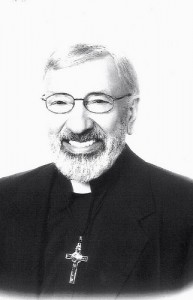 Msgr. Esseff teaches about the need for healing, protection and deliverance. Msgr. Esseff discusses the importance of the “Our Father”. He then leads the following prayer:
Msgr. Esseff teaches about the need for healing, protection and deliverance. Msgr. Esseff discusses the importance of the “Our Father”. He then leads the following prayer:
In the name of Jesus, I take authority and I bind all the powers and forces in the air, in the ground, in the water, in the underground, in the netherworld, in nature and in fire. Â You are the Lord over the entire universe and I give you the glory for your creation. Â In your name, I bind all demonic forces that have come against us and our families and I seal all of us in the protection of your precious blood that was shed for us on the cross.
Mary Our Mother, we seek your protection and intercession, with the Sacred heart of Jesus, for us and our families and surround us with your mantle of love to discourage the enemy.
St. Michael and our Guardian Angels, come and defend us and our families in battle against all the evil ones that roam the earth.
In the name of Jesus, I bind and command all the powers and forces of evil to depart right now away from us, our families, our homes, and our lands and I cast you at the foot of the cross to remain there forever. And I thank you Lord Jesus for you are a faithful and compassionate God, Amen.
Hail Mary, Full of Grace, the Lord is with thee.
Blessed art thou among women,
and blessed be the fruit of thy womb, Jesus.
Holy Mary, Mother of God, pray for us sinners now
and at the hour of our death. Â Amen.
visit Msgr. Esseff’s website “Building A Kingdom of Loveâ€
Tags: catholic, catholic podcast, catholic prayer, cathollc spirituality
This entry was posted on Monday, August 22nd, 2011 at 4:28 pm
You can follow any responses to this entry through the RSS 2.0 feed.
Tags: catholic, catholic podcast, catholic prayer, cathollc spirituality, feast of the transfiguration
This entry was posted on Saturday, August 6th, 2011 at 12:01 pm
You can follow any responses to this entry through the RSS 2.0 feed.
THE INTERIOR CASTLE
OR
THE MANSIONS
By
St. Teresa of Avila
St. Teresa’s introduction to the work: Â [powerpress]
For all chapters of the audio book visit: Â The Interior Castle audio page
For the pdf containing the complete text and footnotes click here
Translated from the Autograph of St. Teresa of Jesus by
The Benedictines of Stanbrook
Thomas Baker, London
[1921]
Dom Michael Barrett, O.S.B.
Censor Deputatuus
Nihil Obstat:
✠Edward
Apostolic Administrator
Birmingham, Oscott.
February 24, 1921
Tags: catholic, catholic podcast, catholic prayer, cathollc spirituality, Dom Michael Barrett, st teresa, st. teresa of avila, Teresa of Avila
This entry was posted on Sunday, July 31st, 2011 at 8:50 am
You can follow any responses to this entry through the RSS 2.0 feed.
THE INTERIOR CASTLE
OR
THE MANSIONS
By
St. Teresa of Avila
The First Mansions Chapter 1: Â [powerpress]
For the pdf containing the complete text and footnotes click here
1. Plan of this book. 2. The Interior Castle. 3. Our curable self ignorance. 4. God dwells in the centre of the soul. 5. Why all souls do not receive certain favours. 6. Reasons for speaking of these favours. 7. The entrance of the Castle. 8. Entering into oneself. 9. Prayer. 10. Those who dwell in the first mansion. 11. Entering. 12. Difficulties of the subject.
Translated from the Autograph of St. Teresa of Jesus by
The Benedictines of Stanbrook
Thomas Baker, London [1921]
Dom Michael Barrett, O.S.B.Censor Deputatuus
Nihil Obstat:✠Edward Apostolic Administrator Birmingham, Oscott.
February 24, 1921
Tags: catholic, catholic podcast, catholic prayer, cathollc spirituality, st. teresa of avila, Teresa of Avila, the interior castle, THE INTERIOR CASTLE OR THE MANSIONS
This entry was posted on Saturday, July 30th, 2011 at 9:57 am
You can follow any responses to this entry through the RSS 2.0 feed.
THE INTERIOR CASTLE
OR
THE MANSIONS
By
St. Teresa of Avila
The First Mansions Chapter 2: Â [powerpress]
For the pdf containing the complete text and footnotes click here
1. Effects of mortal sin. 2. It prevents the soul’s gaining merit. 3. The soul compared to a tree. 4. Disorder of the soul in mortal sin. 5. Vision of a sinful soul. 6. Profit of realizing these lessons. 7. Prayer. 8. Beauty of the Castle. 9. Self-knowledge 10. Gained by meditating on the divine perfections. 11. Advantages of such meditation. 12. Christ should be our model. 13. The devil entraps beginners. 14. Our strength must come from God. 15. Sin blinds the soul. 16. Worldliness. 17. The world in the cloister. 18. Assaults of the devil. 19. Examples of the devil’s arts. 20. Perfection consists in charity. 21. Indiscreet zeal. 22. Danger of detraction
Translated from the Autograph of St. Teresa of Jesus by
The Benedictines of Stanbrook
Thomas Baker, London [1921]
Dom Michael Barrett, O.S.B.Censor Deputatuus
Nihil Obstat:✠Edward Apostolic Administrator Birmingham, Oscott.
February 24, 1921
Tags: catholic, catholic podcast, catholic prayer, cathollc spirituality, mortal sin, st. teresa of avila, Teresa of Avila, the interior castle, THE INTERIOR CASTLE OR THE MANSIONS
This entry was posted on Friday, July 29th, 2011 at 8:30 am
You can follow any responses to this entry through the RSS 2.0 feed.
THE INTERIOR CASTLE
OR
THE MANSIONS
By
St. Teresa of Avila
The Second Mansion Only Chapter: Â [powerpress]
For the pdf containing the complete text and footnotes click here
1. Souls in the second mansions. 2. Their state. 3. Their sufferings. 4. They cannot get rid of their imperfections. 5. How God calls these souls. 6. perseverance is essential. 7. Temptations of the devil. 8. Delusion of earthly joys. 9. God alone to be loved. 10. Reasons for continuing the journey. 11. War fare of the devil. 12. Importance of choice of friends. 13. Valour required. 14. Presumption of expecting spiritual consolations at first. 15. In the Cross is strength. 16. Our falls should raise us higher. 17. Confidence and perseverance. 18. Recollection. 19. Why we must practise prayer. 20. Meditation kindles love.
Translated from the Autograph of St. Teresa of Jesus by
The Benedictines of Stanbrook
Thomas Baker, London [1921]
Dom Michael Barrett, O.S.B.Censor Deputatuus
Nihil Obstat:✠Edward Apostolic Administrator Birmingham, Oscott.
February 24, 1921
Tags: catholic, catholic podcast, catholic prayer, cathollc spirituality, perseverance, st. teresa of avila, Teresa of Avila, THE INTERIOR CASTLE OR THE MANSIONS
This entry was posted on Thursday, July 28th, 2011 at 9:49 pm
You can follow any responses to this entry through the RSS 2.0 feed.
THE INTERIOR CASTLE
OR
THE MANSIONS
By
St. Teresa of Avila
The Third Mansion Chapter 1: Â [powerpress]
For the pdf containing the complete text and footnotes click here
1. Souls in the Third Mansions. 2. Insecurity of this life. 3. Our danger of falling from grace. 4. The Saint bewails her past life. 5. Our Lady’s patronage. 6. Fear necessary even for religious. 7. St. Teresa’s contrition. 8. Characteristics of those in the Third Mansions. 9. The rich young man in the Gospel. 10. Reason of aridities in prayer. 11. Humility. 12. Tepidity. 13. We must give all to God. 14. Our debt. 15. Consolations and aridities
Translated from the Autograph of St. Teresa of Jesus by
The Benedictines of Stanbrook
Thomas Baker, London [1921]
Dom Michael Barrett, O.S.B.Censor Deputatuus
Nihil Obstat:✠Edward Apostolic Administrator Birmingham, Oscott.
February 24, 1921
Tags: catholic, catholic podcast, catholic prayer, cathollc spirituality, st teresa, st. teresa of avila, Teresa of Avila, the interior castle, THE INTERIOR CASTLE OR THE MANSIONS
This entry was posted on Wednesday, July 27th, 2011 at 3:48 pm
You can follow any responses to this entry through the RSS 2.0 feed.
THE INTERIOR CASTLE
OR
THE MANSIONS
By
St. Teresa of Avila
The Third Mansion Chapter 2: Â [powerpress]
For the pdf containing the complete text and footnotes click here
1. Imperfections of dwellers in the first three mansions. 2. Our trials show us our weakness. 3. Humility learnt by our faults. 4. Love of money. 5. Liberty of spirit. 6. On bearing contempt. 7. Detachment proved by trials. 8. Virtue and humility are the essentials. 9. Perfection requires detachment. 10. We should try to make rapid progress. 11. Leave our cares in God’s hands. 12.Humility more necessary than corporal penances. 13. Consolations rarely received until the fourth mansions. 14. Advantages of hearing of them. 15. Perfection consists in love, not in reward. 16. St. Teresa’s joy at seeing other souls favoured. 17. These graces should be striven for. 18. Obedience and direction, 19. Misguided zeal for others.
Translated from the Autograph of St. Teresa of Jesus by
The Benedictines of Stanbrook
Thomas Baker, London [1921]
Dom Michael Barrett, O.S.B.Censor Deputatuus
Nihil Obstat:✠Edward Apostolic Administrator Birmingham, Oscott.
February 24, 1921
Tags: catholic, catholic podcast, catholic prayer, cathollc spirituality, detachment, st. teresa of avila, Teresa of Avila, the interior castle, THE INTERIOR CASTLE OR THE MANSIONS
This entry was posted on Tuesday, July 26th, 2011 at 8:43 am
You can follow any responses to this entry through the RSS 2.0 feed.

